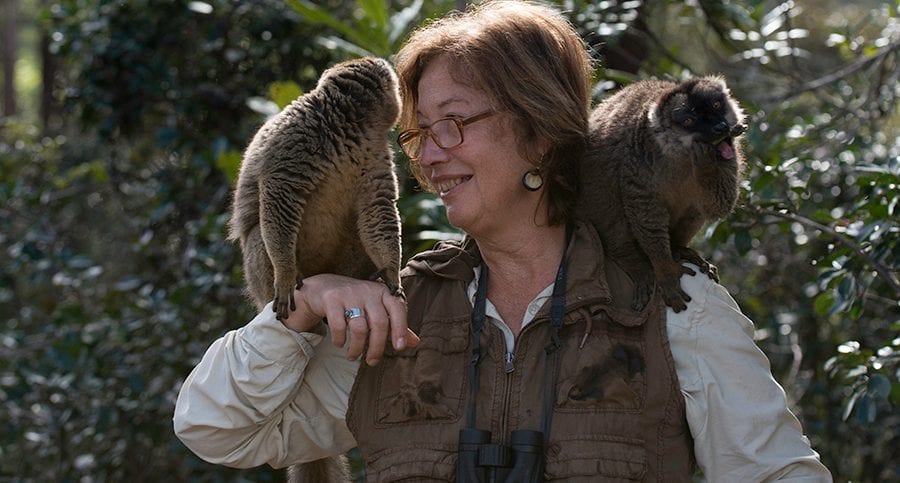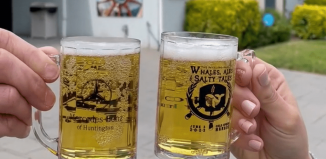By Daniel Dunaief
Small primates on an island nation off the southeastern coast of the African continent need about a million dollars.
That’s how much it might take to keep Ranofamana National Park, where Centre ValBio is located, afloat financially until people develop a vaccine.
Patricia Wright, who founded CVB, has spent the last 36 years studying a wide range of lemurs, even as she has integrated her efforts into the life of the Malagasy.
While she won conservation awards in the United States, including the 2014 Indianapolis Prize for Conservation from the Indianapolis Zoo, Wright has also won three medals of honor from the government of Madagascar as she has taken steps to improve the economic and physical health of the people who live around Ranomofana.
Now, with tourists who might be carriers of COVID-19 excluded from the national parks, lemur conservation, the tour guides who provide colorful commentary about the world-renowned primates, and the artists who provide local flavor and collectibles for visitors are all under duress.
The tour guides are “local residents and are incredible,” Wright said. “They are locally trained.” Indeed, many of those who share the natural riches of the region used to be loggers when they were younger.
“We’re talking about people and about critically endangered lemurs,” she added.
Wright often highlights the positive feedback loop between conservation and the local economy, which has created job opportunities even as it has enabled the country to attract tourists from around the world who celebrate the land of the lemur.
Building on her experience with delivering medicine to people around the national park, Wright plans to bring a polymerase chain reaction machine to Centre ValBio to test people for COVID-19.
Wright is seeking financial support from those who would like to ensure that the sifaka lemur, named after the “shi-fa” alarm call it makes when it feels threatened; the aye-aye lemur, which is the largest nocturnal primate in the world; and the indri lemur outlast the devastating effects of a virus that threatens the lives of people throughout the world.
Someday, when the smoke has cleared and people can look at what’s left in the world, Wright hopes Ranomafana Park and its lemurs are not only one of the survivors, but are also a rare, ecological site that calls to visitors from all over the world eager to celebrate the cultural richness of the Malagasy as well as the lemurs and other rare creates calling to each other from the rainforest.
Those interested in donating to this effort may visit the CVB web site at Welcome to Centre ValBio at Stony Brook University.







